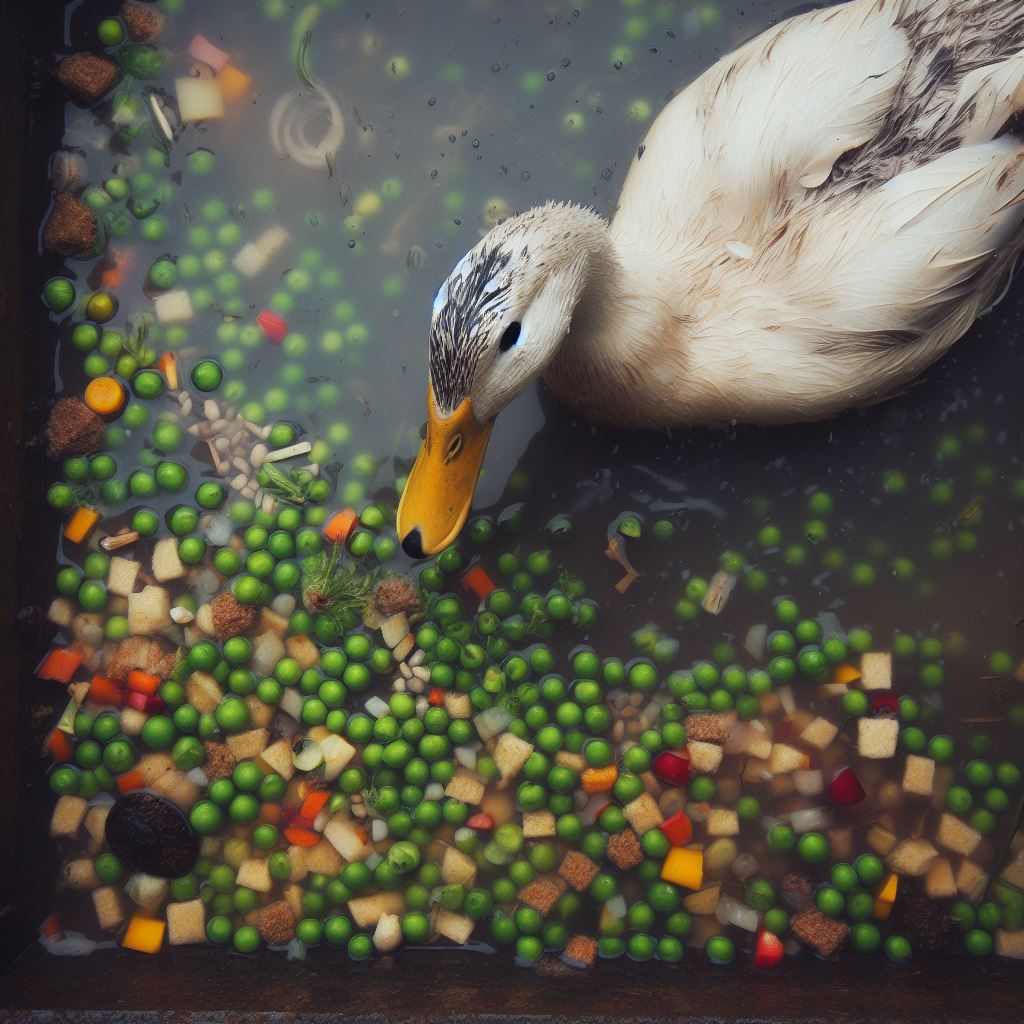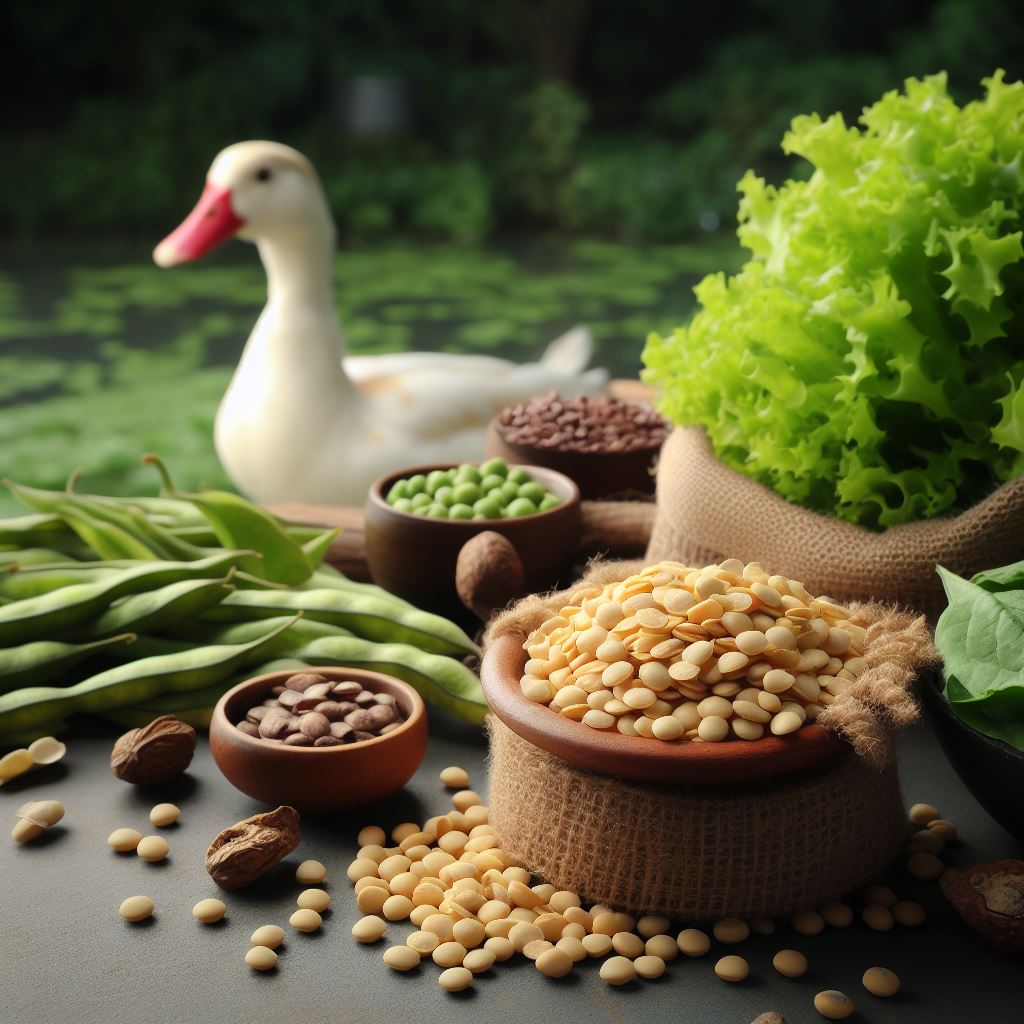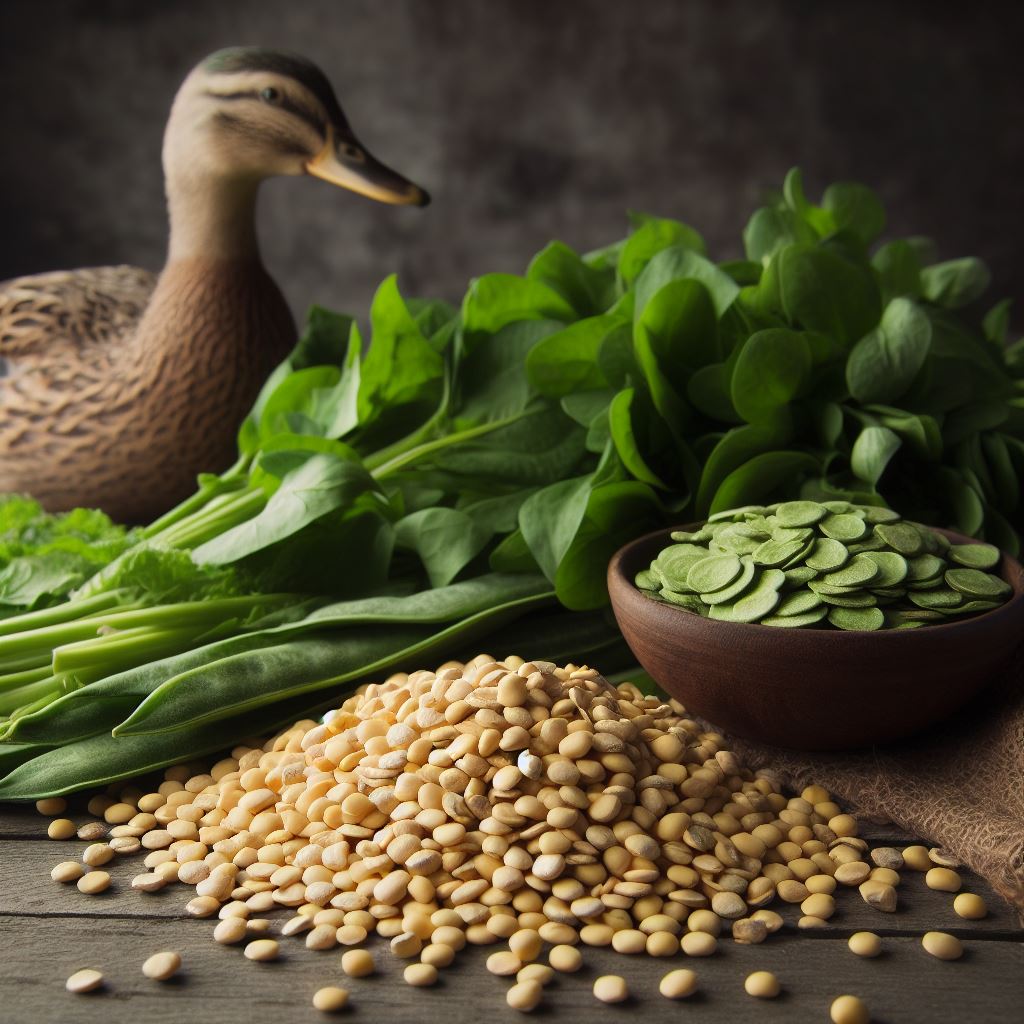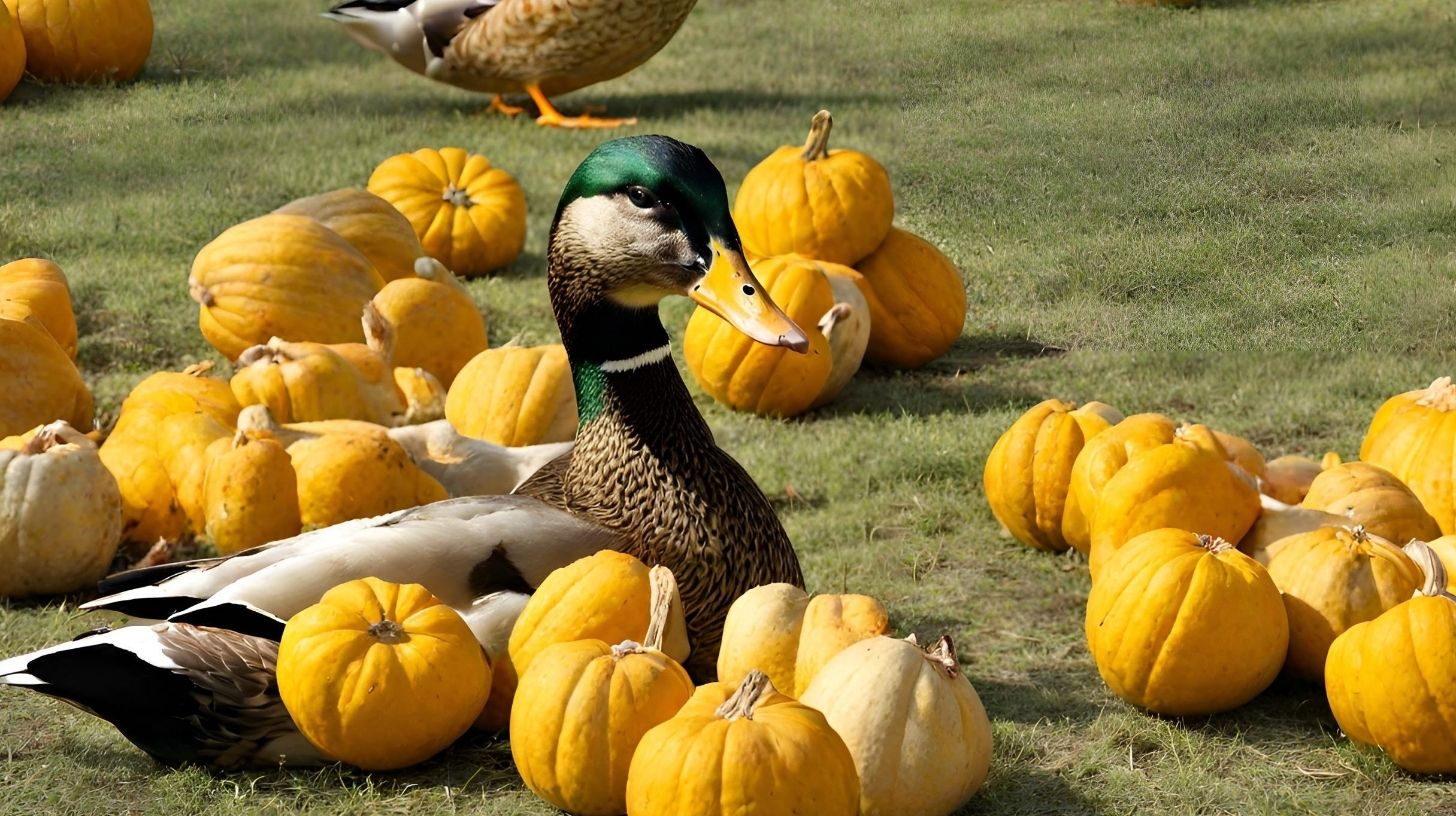Can Ducks Eat Dried Split Peas? Proper Feeding Tips

Table of content:
- Are Dried Peas Good For Ducks?
- Can You Feed Ducks Split Peas?
- What Vegetables Can Ducks Eat?
- How Much Peas Should You Feed Ducks?
- Do You Soak Peas for Ducks?
- Can Ducklings Eat Split Peas?
- What Do Baby Ducks Eat?
- What Should You Not Feed Ducks?
- Feeding Ducks: Best Practices
- Sample Duck Diet
- FAQs About Feeding Dried Split Peas to Ducks
- Conclusion
Can Ducks Eat Dried Split Peas? Dried split peas can make a healthy, natural treat for ducks when fed in moderation. However, there are some important factors to consider before feeding peas to ducks. This comprehensive guide provides duck owners, bird enthusiasts, and nature lovers with valuable insights on feeding dried split peas to ducks.
Key Takeaways:
- Dried split peas are safe for ducks to eat but should be fed in moderation.
- Peas provide protein, carbohydrates, fiber and other nutrients ducks need.
- Only feed peas that are unseasoned and completely dried.
- Avoid feeding peas with added salt, spices, oil or other flavorings.
- Peas should be just a small part of a balanced duck diet.
- Watch portion sizes to prevent weight gain or digestive issues.
- Peas can be an alternative to bread, corn and crackers for ducks.
- Soaking peas can make them easier to digest.
- Peas should complement greens, vegetables, grains and duck feed.
Dried split peas are the whole and split seeds of the Pisum sativum plant, a type of field pea often used in soups and stews. When split and dried, the pea halves reveal the yellow interior known as split peas. These versatile legumes are packed with protein, carbohydrates, fiber and micronutrients like iron that make them a nutritious addition to the diet of ducks when fed properly.
 Are Dried Peas Good For Ducks?
Are Dried Peas Good For Ducks?
Peas contain beneficial nutrients that wild ducks forage for naturally. The protein in peas provides amino acids essential for growth and maintenance, while the complex carbohydrates supply steady energy. The insoluble fiber in peas promotes healthy digestion, and the vitamins and minerals offer nutritional support.
In particular, the niacin, riboflavin, thiamine, iron and phosphorus in peas can complement the duck diet. Peas also contain antioxidants like carotenoids that support immunity. When included as part of a balanced diet, dried split peas can be a healthy treat for ducks.
Can You Feed Ducks Split Peas?
Yes, ducks can safely eat dried split peas. In fact, many duck owners use peas as an alternative to bread, corn, crackers and other human foods commonly fed to ducks. Dried peas pose much less risk of causing weight gain or metabolic issues.
It’s important to only feed ducks unseasoned, plain split peas with no added salt, sugar, oil, spices or other flavorings. Only choose peas that are fully dried and shriveled. Avoid canned or cooked peas, which contain too much moisture for ducks.
What Vegetables Can Ducks Eat?
Along with dried peas, ducks enjoy a diverse mix of vegetables:
- Leafy Greens: Lettuce, kale, spinach, swiss chard
- Produce: Peas, broccoli, squash, carrots, sweet potatoes
- Aquatic Plants: Duckweed, watercress, azolla
Offer a variety of chopped greens and vegetables to provide balanced nutrition. Rotate different produce to give ducks diverse vitamins, minerals and phytochemicals. Wash all vegetables thoroughly before feeding.
How Much Peas Should You Feed Ducks?
When feeding dried peas to ducks, moderation is key. About 1-2 tablespoons of dried peas per adult duck daily is a good amount. Larger portions can lead to weight gain and put pressure on ducks’ digestive systems.
To prevent gorging, split up portions and mix peas into ducks’ regular food. Ducks may pick out peas first, so combining with greens helps ensure they eat a balanced meal.
Do You Soak Peas for Ducks?
Soaking dried peas before feeding makes them easier for ducks to digest. Place peas in a bowl and cover with water for at least 8 hours. Drain and rinse soaked peas before feeding to ducks.
The rehydration process softens peas’ dense texture. It also reduces phytates that can hinder nutrient absorption. Soaked peas are easier to chew and digest compared to peas fed dry.
Can Ducklings Eat Split Peas?
Ducklings under 6 weeks old should not eat dried peas. Their digestive systems are too immature. Wait until ducklings are older before introducing small amounts of soaked split peas along with greens, grains and duck starter feed.
For young ducklings, chopped lettuce, chickweed, duckweed and insects make ideal first foods. Avoid hard vegetables and legumes until ducklings are fully feathered and actively foraging.
What Do Baby Ducks Eat?
Ducklings require high protein, vitamin-rich diets for proper growth. Here are the best first foods for ducklings:
- Diced lettuce and greens
- Chopped hard boiled eggs
- Crickets, mealworms, grasshoppers
- Duck starter feed
- Chopped fruits like grapes and berries
Avoid feeding ducklings peas, corn, bread or crackers. Wait until 6 weeks of age to introduce peas, veggies and treats in moderation alongside balanced duckling food.
What Should You Not Feed Ducks?
Some common foods can be harmful for ducks:
- Bread – lack of nutrients, mold risk
- Crackers – high salt content
- Chips – unhealthy fats, lack of nutrients
- Popcorn – choking hazard
- Candy – excess sugar
- Raw beans – digestive upset, toxicity
Avoid junk food, salty snacks, sugary treats, and unhealthy table scraps. Never feed ducks anything moldy or spoiled.
 Feeding Ducks: Best Practices
Feeding Ducks: Best Practices
Follow these tips for safely feeding peas and other treats to ducks:
- Wash all produce before feeding
- Chop greens and veggies for easier eating
- Soak dried peas overnight before feeding
- Feed treats in moderation along with regular diet
- Split treats into multiple small feedings
- Ensure adequate grit for digestion
- Remove uneaten food after 30 minutes
Sample Duck Diet
Here is an example of a balanced duck diet including dried peas:
- Duck feed – 1/4 to 1/2 cup per duck daily
- Leafy greens – Daily, chopped
- Vegetables – 1-2 tablespoons per duck daily
- Dried peas – 1-2 tablespoons per duck daily, soaked
- Insects, slugs, snails – Free access
- Oyster shell grit
- Fresh drinking water – Clean and full at all times
Vary fruits, vegetables, and treats to give ducks diversity. Continue providing starter feed to ducklings under 6 weeks old.
FAQs About Feeding Dried Split Peas to Ducks
Can peas make ducks sick?
Peas are safe when fed properly, but overfeeding peas can cause digestive upset. Soaking peas and feeding peas in moderation reduces risk. Monitor ducks for changes in feeding behavior or droppings if introducing new foods.
Do peas have protein for ducks?
Yes, peas contain 18-25% protein, providing ducks with essential amino acids for development, reproduction, and immunity. Peas complement other protein sources like insects, fish, and grains in a balanced duck diet.
Should you feed ducks every day?
Ducks should have access to their regular feed and fresh water daily. Offer treats like peas, chopped veggies and fruit a few times per week to supplement the diet. Avoid feeding ducks table scraps daily.
How often should you feed ducks?
Feed a portion of duck feed once or twice daily. Split treats like peas into two or more small feedings spaced throughout the day. Ducks typically eat most actively early morning and evening. Time treats feedings when ducks are hungriest.
Do peas float when soaked?
Soaked peas tend to sink. Dry peas float because their air pockets provide buoyancy. As peas rehydrate, they become heavier and sink. Soaking also makes peas safer if accidentally dropped in water.
Conclusion
In moderation, dried split peas can be a nutritious addition to a balanced duck diet. Their protein, vitamins and minerals complement leafy greens, vegetables, grains and insects. Soaking peas improves digestibility.
When feeding peas to ducks, controlling portions is key. Peas should never outweigh balanced duck feed in the diet. With some care and common sense, peas can be a safe, healthy, natural treat ducks will appreciate.
Welcome. I’m Adreena Shanum, the proud owner of this website, and I am incredibly passionate about animals, especially poultry. I founded adreenapets.com as a labor of love, stemming from my desire to share my knowledge and experiences with poultry enthusiasts worldwide.




